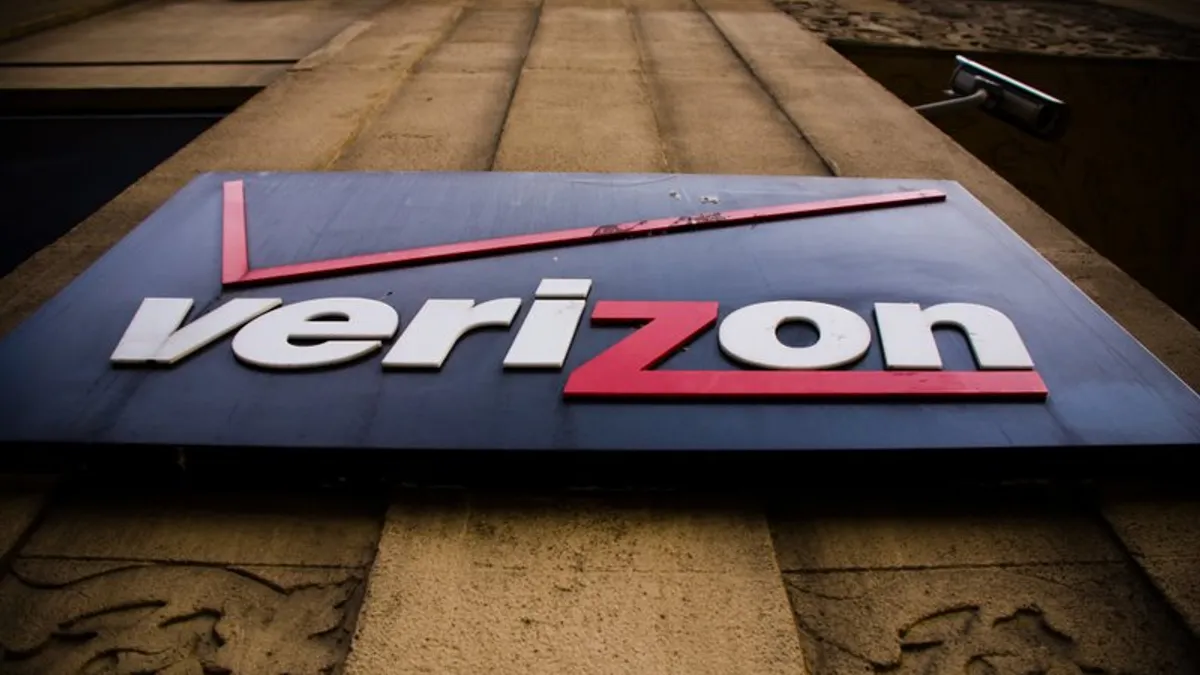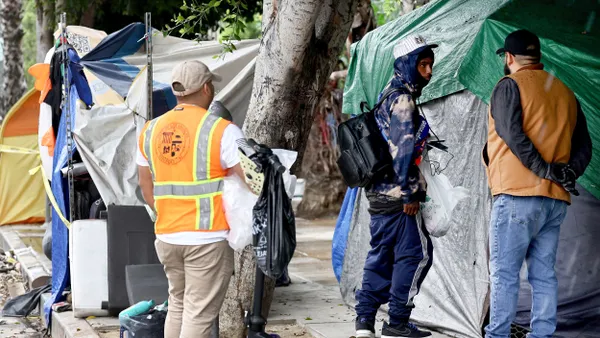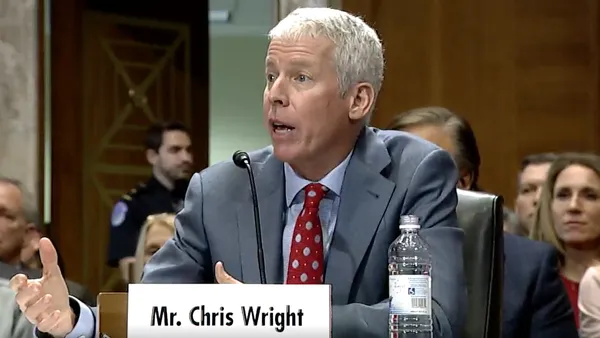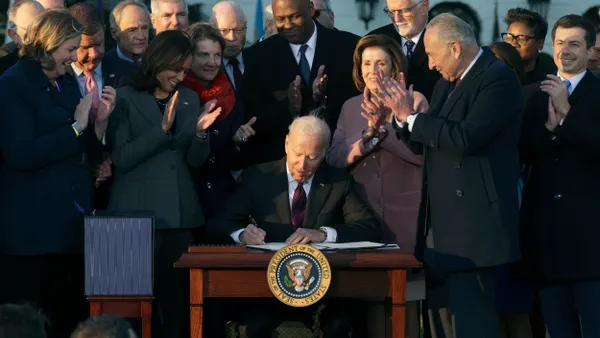Dive Brief:
- In what it calls a "significant" development, Verizon successfully transmitted a 5G signal between two radio sectors to a receiver in a moving car in tests with Nokia, the company announced in a blog post.
- The tests at Verizon’s Murray Hill, NJ headquarters showed a seamless transition between the two radio sectors, showing that the signal could be maintained in a moving vehicle. It’s a step towards getting 5G networks in the real world, especially in cars.
- "Unlike some of the incremental 5G technology announcements we’ve seen lately, tests like the one we conducted are significant advancements in the development of 5G technology,” said Bill Stone, Verizon vice president of technology development and planning. “By taking these tests out of the lab and into the field, we’re replicating the experience users will ultimately have in a 5G mobility environment.”
Dive Insight:
Companies have touted the consumer benefits of 5G through faster broadband and mobile service, but some of the most significant benefits will come through connecting internet of things (IoT) devices on a single high-speed network to create a more connected smart city. For that to come to fruition, companies will have to prove that 5G will work not just through broadband, but wirelessly in a dense city with many moving pieces.
Autonomous vehicles will be one of the biggest sectors where 5G will make a difference, since the 5G network will allow cars to be connected to each other and surrounding infrastructure. The low latency times of 5G — which can go 10 times faster than 4G connections — will ensure that data moves quickly enough between cars and infrastructure to give vehicles time to brake for lights, avoid obstacles or fit into the flow of traffic. 5G can also help smart grid technology by, say, communicating weather to heating and cooling systems or dimming streetlights when no pedestrians or vehicles are present.
A report from Accenture, commissioned by CTIA, found that streamlining the regulations to allow for more deployment of the small cells and radio transmitters for 5G could boost the U.S. GDP by $100 billion by allowing for the applications using 5G to come online faster.
Verizon is set to roll out 5G residential broadband in four cities — Houston, Los Angeles, Sacramento and Indianapolis — by the end of the year. Competitor AT&T has named six cities for its 5G rollout and Sprint has named nine cities for its early 2019 launch. It will still be years before the wider benefits of 5G are felt, but tests like Verizon’s car trials show that companies are aggressively trying to embrace 5G’s potential.










